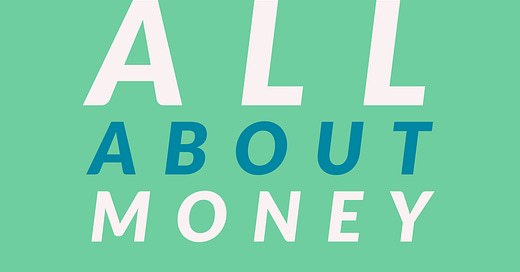Inflation is one of the greatest threats to your finances. It erodes buying power, reducing how much your money can buy year after year. A dollar in your bank account today will be worth less than a dollar in real terms next year. More importantly, inflation compounds. You may not notice a year’s worth of inflation, but if you kept all your savings in cash and never got a raise, you wouldn’t be able to afford the same lifestyle after a few years.
For many decades, inflation wasn’t something Americans had to worry too much about. After several years of high inflation throughout the 70s and early 80s, inflation remained low and averaged around 2% annually when the COVID-19 pandemic hit. That all changed in 2021 when the year-over-year inflation rate rose to 7%, followed by 6.5% in 2022. After the Federal Reserve began raising rates, inflation fell to 3.45% in 2023 and 2.9% in 2024. This is still above the Fed’s target of 2% and there are many factors — like tariffs — that could send the inflation rate back up again. But 3% is a more realistic historical average.
Inflation drives consumers crazy. There’s nothing people hate more than paying more for things even if real wages manage to keep up. However, it’s important to keep in mind that a little bit of inflation is actually a good thing because it encourages investment. If prices stayed the same or declined, no one would have an incentive to invest and economic growth would slow down. You’re right to hate inflation on a personal level, but deflation would be even worse.
That doesn’t mean whatever amount of inflation we’re dealing with isn’t a problem. It is a problem, but it’s relatively simple to solve over the long term.
So how do you beat inflation?
1. Invest in Income-Producing Assets
The easiest way to beat inflation is to invest in income-producing assets. Three major asset classes produce income:
Stocks
Real estate
Bonds
Stocks are hands down the best hedge against inflation for your average household, specifically when packaged into an index fund. They’re relatively easy to understand, cheap to buy and hold and well-diversified. On average, the S&P 500’s real return — that is, the return after factoring in inflation — is between 6% and 7%.
Real estate can also beat inflation, with some important caveats. First, all real estate is local. Just because the real estate market in the U.S. beats inflation doesn't mean you can get exposure to the national real estate market. There is no index fund for real estate (notwithstanding the existence of REITs) like there is for the stock market. You can theoretically get close by buying enough properties in different locations, but this is not practical for the average person. Second, real estate as an inflation hedge works best when you rent out the property to tenants. Otherwise, you’re limiting your returns to only price appreciation and ignoring the income part of the equation. You may still beat inflation but not by as much.
Two types of bonds are purpose-built to beat inflation: treasury inflation-protected securities (TIPS) and I bonds. You can buy TIPS individually or via a mutual fund or ETF. You can only buy I bonds directly from the Treasury website, and they come with purchase limits. A common pitfall with these kinds of bonds is that they may not beat inflation if you don’t hold them to maturity.
Beating inflation involves taking investment risk, but that risk pays off if you have a long-term focus.
2. Lock in a Mortgage Rate
It’s not possible to lock in the price of eggs, gasoline or any other basic necessity. But housing? Not only is it the largest household expense, but it’s also one of the easiest costs to lock in. A fixed-rate mortgage ensures you’re still paying the same amount from year one of your mortgage term as you are 30 years later.
There are other factors you need to consider before buying a home. The mortgage is not the only cost, and if you move you do not in fact lock in your rate for the full term. But if you’re already planning to buy a home and it makes financial sense to you, locking in a low-rate mortgage is one way to weather rising housing costs.
3. Grow Your Income
Inflation grows every year, and every year you don’t get a raise your salary is worth less in real terms. At a minimum, you need to increase your income with inflation. You can do this by asking for a raise, or you can find a new job that will pay you more.
Investing in your career by gaining new levels of education, skills or experience are all paths to earning more. It’s often easier said than done, but constantly working on career development is a good long-term strategy to beat inflation.
Inflation is Beatable
Beating inflation isn’t that complicated, and the negative effects are not inevitable if you make the right financial moves. Anytime you can put your extra cash into long-term, income-producing assets, you are hedging against inflation. Anytime you can fix your major living costs, like housing, you are hedging against inflation. And growing your income beyond the rate of inflation is one of the best ways to beat it, particularly in the short term.
Inflation doesn’t have to be financially devastating. There will be plenty of times when it hurts in the short term, but good financial planning will leave you prepared to tackle it over the long term.



